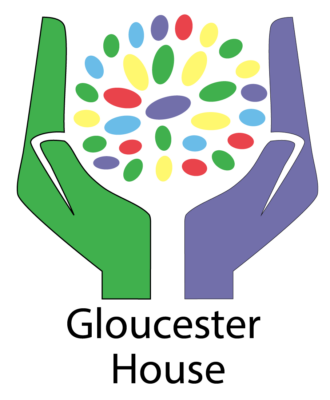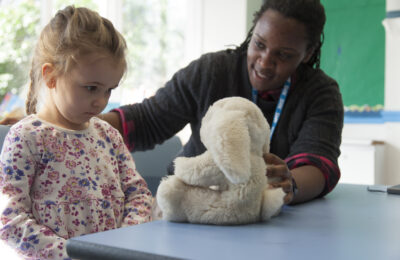
Supporting young people with managing emotions (CPD33G)
Develop practical strategies to support emotional regulation and resilience in children and young people
Supporting young people to manage their emotions effectively is essential for their wellbeing and development. In this interactive online course, developed by experts from Gloucester House Outreach Service, you will:
- Explore practical strategies to support emotional regulation in children and adolescents.
- Understand key concepts of co-regulation and self-regulation, and the important differences between them.
- Gain insights from evidence-based neuroscience to inform your understanding of emotional behaviour.
- Reflect on how your own emotional responses influence interactions with young people.
- Access practical tools and mindfulness resources designed for use in one-to-one emotional support sessions.
Aims and learning objectives
After completing this course, you will understand:
- the essential differences between co-regulation and self-regulation, and how to apply both effectively.
- key functions of three areas of the brain and their influence on emotional behaviour and learning.
- practical mindfulness techniques and a range of engaging activities to promote emotional regulation.
- how to plan and facilitate structured sessions that increase young people’s awareness of their brain, emotions, and behaviours.
- strategies to help both young people and yourself understand emotional responses to enhance emotional regulation.
- the importance of recognising and valuing diverse emotional experiences, ensuring inclusive and equitable emotional support practices.
Who is this course for?
This course is ideal for professionals working directly with children and young people who need support managing their emotions. It is particularly suitable for:
- SENCOs, learning support assistants, and teachers
- School pastoral and mental health leads
- Educational psychologists and counsellors
- Mentors and youth workers
- Social workers and case workers
- Professionals working in the public, voluntary, or charity sectors who support children’s emotional wellbeing.
Participants will benefit from experience or responsibility in supporting emotional regulation and mental health within educational, care, or community settings.
Course details
This course consists of a single live, interactive three-hour session delivered remotely via Zoom, including a short comfort break. You’ll join a supportive online environment to engage directly with a leading practitioner who will share current educational and clinical best practices. The facilitator will adapt the session to your group’s specific needs, ensuring plenty of opportunities for active participation and questions.
| Session | Date | Start time | End time |
|---|---|---|---|
| Session 3 | 01 July 2026 | 2pm | 5pm |
Important Information:
- Sessions will not be recorded.
- You will receive practical resources and strategies you can immediately apply within your professional context.
Technical Requirements:
You will need a device with a microphone and camera together with a suitably fast internet connection. Although mobile devices and tablets can be used, we recommend the use of laptop or desktop PC for the best experience. Some devices provided by employers may have restrictions in place. Please use the Zoom test link to check your set up before booking.
You will be sent the necessary login link about a week before the course start date. Should you have any concerns about the accessibility of remote delivery please contact us at CPDEvents@tavi-port.ac.uk to discuss how we can best help you.
Through interactive discussions, reflective exercises, and practical activities, you will learn:
- how to confidently engage young people in conversations about brain functions, emotions, and behaviours, enhancing their self-awareness and emotional understanding.
- key concepts around the ‘window of tolerance’, and why children and young people respond differently to stress and challenging events.
- strategies for planning and delivering effective psychoeducation sessions designed to help young people understand their brain, emotions, and behaviours.
- a variety of tailored mindfulness activities and resources that encourage self-regulation and emotional balance in young people.
- practical approaches for enhancing emotional literacy, enabling children and adolescents to clearly identify and communicate their thoughts, emotions, and needs.
The course incorporates interactive group discussions, case examples, and guided self-reflection to ensure meaningful application of these skills in your practice
You may also be interested in…

For further information about Gloucester House Outreach Service, find out more on their website.
Why study with us?
This course has been developed in partnership with Gloucester House Outreach Service GHOR), an integrated team of clinical and education specialists that forms part of The Tavistock and Portman NHS Foundation Trust. The service draws on its extensive combined experience in mental health and education to provide a holistic approach that addresses the most pressing needs and challenges facing our sector today.
Testimonials
Course facilitators
Book your place today
You can book a place at any time.
Please use the “book now” button to pay for your course by either personal or organisational credit/debit card. This is the quickest and easiest way to book your place.
If your organisation can only pay by invoice, please email a Purchase Order to CPDEvents@tavi-port.ac.uk clearly stating the course you wish to book, and its start date. Requestions, emails from managers and other similar documents cannot be accepted. You will then be sent a code to enable you to complete your booking, bypassing the payment stage.
After booking you’ll receive confirmation by email, and we will be in touch approximately one week before the course starts with detailed joining instructions.


